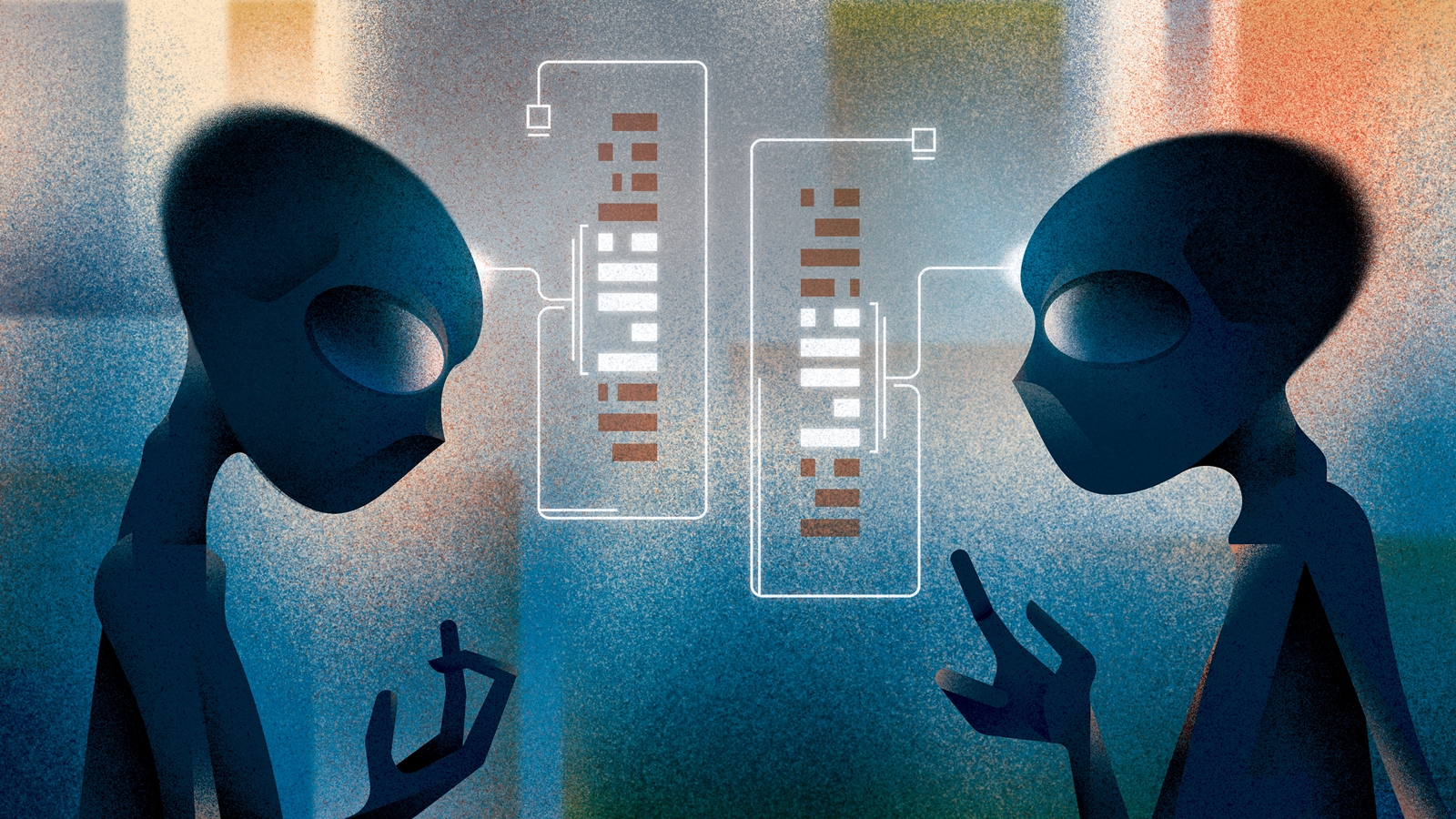Talking With “Aliens”
Linguist Gareth Roberts uses ‘alien’ languages and interactive games to show how social pressures shape our communication.

How can talking like an alien help advance our understanding of language? Gareth Roberts, Associate Professor of Linguistics, directs the Cultural Evolution of Language Lab, where he uses experimental techniques like artificial languages and interactive games to explore how social pressures shape language over time.
These miniature languages can include from 2 to 20 new words with variable endings and different dialects. This approach allows linguists to study language learning and evolution in a structured setting, akin to how researchers in the biological sciences use model organisms like fruit flies or mice for their easily manipulated genetic systems and fast reproductive cycles.
In addition, Roberts often builds games that feature player-to-player dialogue and stylized alien creatures. By manipulating the linguistic features associated with particular social traits of the “alien” languages—like a certain suffix being linked in players’ minds with a personality trait—Roberts can see how social factors influence language evolution.
One avenue of the lab’s research concerns how social biases can hinder effective communication. Roberts, with collaborators Masha Fedzechkina and Lucy Hall Hartley at the University of Arizona, mimicked this effect of social pressure in a study published in 2022 in the journal Language Acquisition. In the experiment, participants met two species of aliens, each with its own dialect of the same artificial language, in which words could be arranged in multiple, ambiguous orders. One of the alien species’ dialects included suffixes that helped reduce that ambiguity; the dialect of the other left the meaning unclear.
As participants learned the alien language, they received messages that encouraged them either to feel the same about the two alien species or to prefer one over the other. When participants saw messages that made them feel more negatively about the aliens who used the clarifying suffixes, the participants dropped the suffixes in their own writing.
“The social pressure pushed people into a position where they were sharing sentences that were really ambiguous and did not do a good job of communicating the statement they wanted to communicate,” says Roberts. “It may be that social pressures play a very powerful role.”
The gamelike structure of these alien language experiments sets them apart from traditional psycholinguistic research, which can feel more like a test and doesn’t always capture the engaging nature of real-world language use. With games, Roberts says, “people tend to be very engaged, and they often care quite a lot about what happens.”
In a study published in 2018 in the journal Cognition, Roberts used one of these games to investigate how and why speakers pick up different dialects. Participants played as one of two species of aliens, chatting with each other and collecting resources by trading or fighting. Each species of alien—the weak, scrawny Wiwos and the tough, brawny Burls—had its own attributes and dialects. Roberts found that in the experiments where participants could fight to collect resources, the participants—even those assigned as Wiwos—started to pick up the dialect of the tougher Burls. The findings, he says, suggest that people tend to borrow linguistic features from groups with traits they value.
In the future, Roberts says he hopes to run his artificial language experiments for even longer—potentially building languages over weeks or months rather than hours or days—and bring his games out of the lab. “I’m interested in the possibility of larger-scale experiments, where people take part using an app or on an online experimental platform.”



